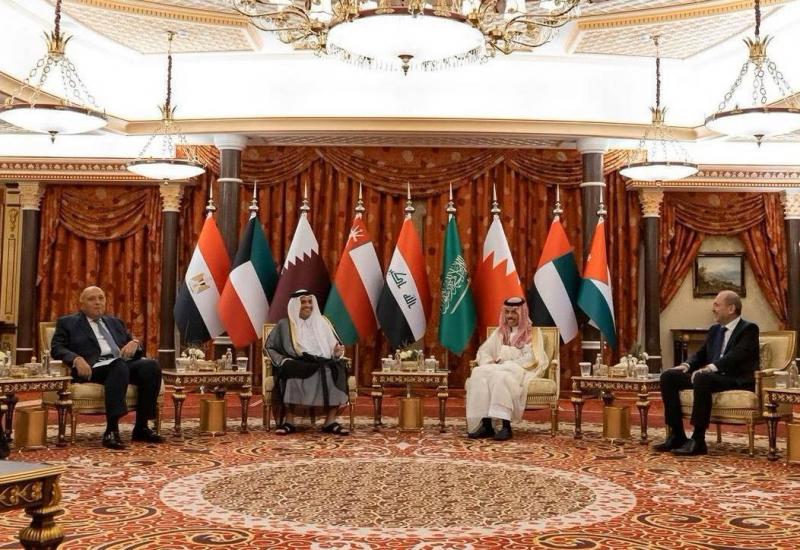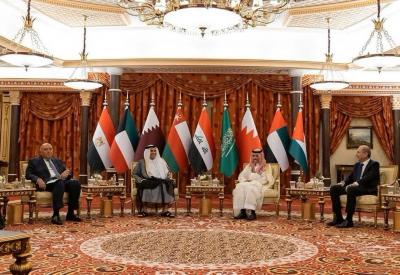The Saudi Ministry of Foreign Affairs announced in a statement that "the foreign ministers of the Gulf Arab states, along with their counterparts from Egypt, Iraq, and Jordan, discussed the potential return of Syria to the Arab sphere; however, no decision has been made yet." The statement indicated that "Saudi Arabia called for the meeting held in the city of Jeddah amid a recent easing of regional tensions, but it concluded without reaching a decision."
At the end of the meeting, a statement was released highlighting the exchange of views on efforts to achieve a political solution to the Syrian crisis that addresses all its repercussions, maintains Syria's unity, security, stability, and Arab identity, and reintegrates it into its Arab surroundings for the benefit of its brotherly people. The ministers agreed on the importance of resolving the humanitarian crisis, providing a conducive environment for aid to reach all areas of Syria, and preparing the necessary conditions for the return of Syrian refugees and displaced persons to their regions, ending their suffering, and enabling their safe return to their homeland. They emphasized the need for further measures that would contribute to stabilizing the situation throughout Syrian territory.
The ministers affirmed the importance of combating terrorism in all its forms and organizations, as well as addressing drug trafficking and trade. They stressed the importance of state institutions maintaining Syria's sovereignty over its territories to end the presence of armed militias and foreign interventions in Syrian internal affairs.
During the consultative meeting, the ministers reiterated that a political solution is the only way to address the Syrian crisis. They highlighted the importance of having a leading Arab role in efforts to resolve the crisis, establishing the necessary mechanisms for this role, and increasing consultations among Arab states to ensure the success of efforts to resolve the Syrian crisis while expressing their commitment to continue consultations among themselves to follow up on these efforts.
Some Arab countries, particularly Egypt and the UAE, have made efforts to restore relations with Damascus. An informed source mentioned that "Jordan said it is pushing for a joint Arab peace plan that could put an end to the devastating consequences of the ongoing Syrian conflict that has lasted for more than 10 years." Meanwhile, Abu Dhabi and Oman welcomed the Syrian president following the devastating earthquake that struck Turkey and Syria. Saudi Arabia indicated the need for a new approach with Damascus, and the two countries agreed to reopen their embassies after a visit from Syrian Foreign Minister Faisal Mikdad to Riyadh.




